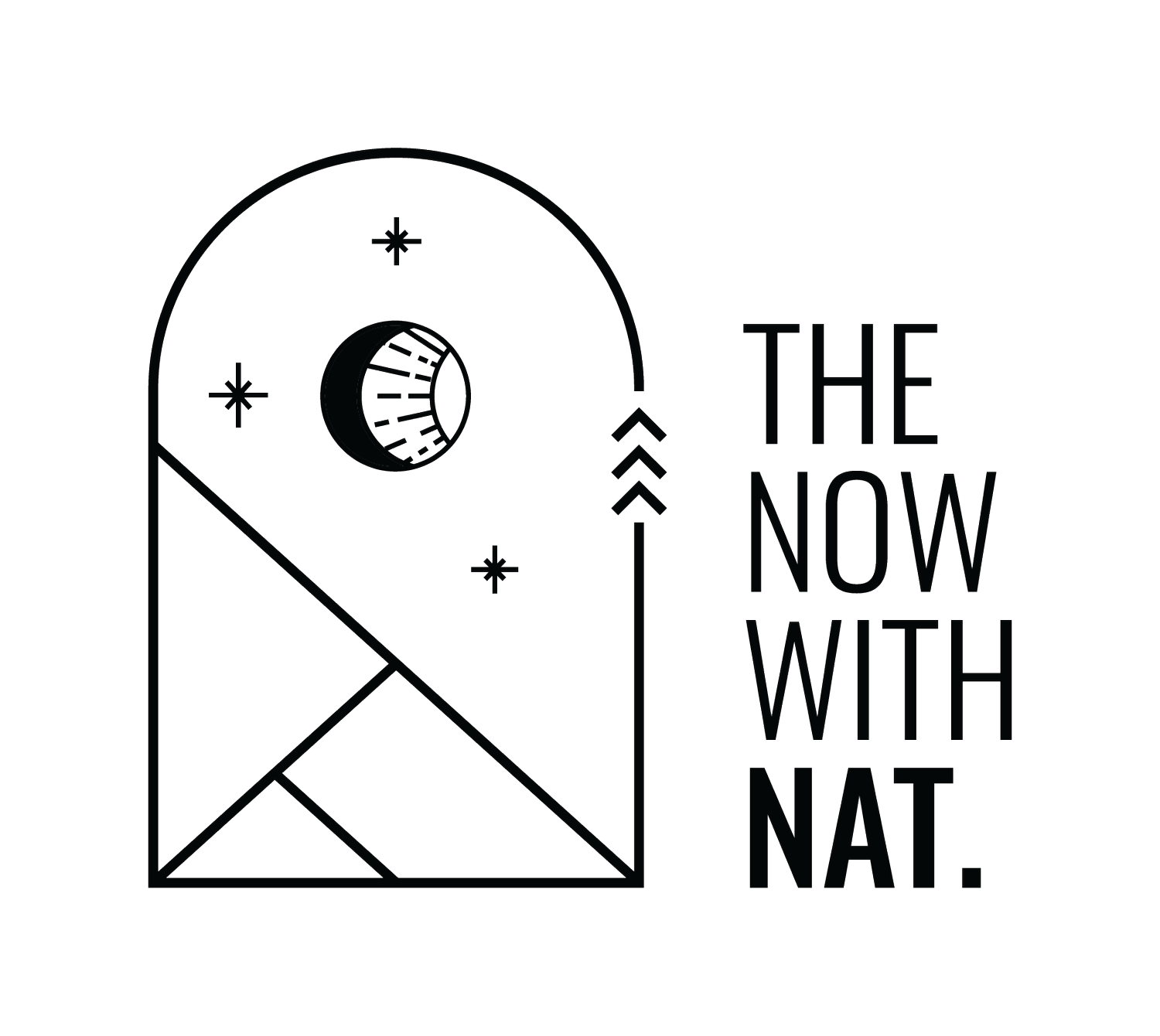
Life is one big adventure
4 Ways to Sleep Better and to Keep Your Mental Health in Check
Sleep disorders like insomnia are often a sign of depression, anxiety, ADHD, or a number of other mental disorders. Conversely, sleep deprivation has been known to amplify mental illnesses.
A healthy amount of sleep is necessary in order to remain healthy -- not just physically, but mentally, as well. And while this is easier said than done, it’s a challenge that can be surmounted by taking stock and making a few lifestyle tweaks to give yourself exactly what your mind and body need for optimum sleep.
Here are some tips from The Now With Nat to get your sleep schedule back on track.
Check your sleep/wake cycle
Here’s a fact: your sleepiness and wakefulness are governed by the circadian rhythm, which is essentially your body’s internal clock. Understanding and keeping this complex timekeeper balanced is the very key to sleeping better and, subsequently, staying healthy holistically. Fundamentally, this entails keeping to a consistent sleep/wake schedule daily. This also means resisting the temptation of late nights and sleeping in during the weekends, as well as long naps.
Check your sleep environment
Another thing that also plays a huge role in ensuring that you get quality sleep is your sleep environment. Experts agree that the perfect environment should be “cool, quiet, and dark” -- that is to say, free from light sources and sound that could wake you up and in a comfortable temperature that remains consistent throughout the night.
Your sleep surface is also an extremely important consideration, which makes a good mattress a real necessity. Some mattresses are better than others, though, and most people don’t know what to look for when buying one. However, memory foam mattresses are almost always a safe bet. These come in varying degrees of firmness, ranging from soft to firm. They can also be foam only or hybrid, flippable, or single-sided. It’s a good idea to take your needs, based on sleep style and firmness, into account when shopping for one.
Likewise, it’s also possible that your mattress could be harboring germs or allergens that are making sleep difficult. As this is a common but often overlooked problem, it’s a good idea to check Angi for a professional who cleans furnitureand browse the ratings and reviews to find someone who can put you one big step closer to a good night’s sleep.
Check what you consume
What you regularly consume in terms of food and drink has a legitimate effect on how well you sleep and, by extension, your mental health. At the most basic level, this means forgoing caffeine, sugar, and other heavy food that may induce heartburn and wakefulness at night. However, it’s also interesting to note that there are certain items that actually promote better sleep, such as complex carbs and dairy. Some fruits and nuts also contain the sleep hormone melatonin, as well as antioxidants, which all have positive effects on sleep.
Check your routine
Finally, your routine has a huge bearing on both how well you sleep and maintain your mental health. So consider your bedtime routine. If you’ve ever tried sleeping with anxiety and an overactive mind, you’ll know that it can be downright frustrating and all sorts of exhausting. But by incorporating calming activities to your nightly routine, you have the opportunity to go easy on stimulation, wind down, and ultimately, relax. Putting down your electronic devices a good hour or two before bedtime also helps, as does a relaxing stretch or meditation practice.
Another great strategy is to streamline your work routine so that you can identify areas where you might be spinning your wheels and inadvertently increasing your own anxiety. To help, ZenBusiness suggests keeping a work diary. This has the added benefit of reducing stress because instead of trying to remember every single thing you have to do the next day, you can simply refer back to your own notes. This also highlights your successes while allowing you to learn constructively from anything that might not have worked out as well as you intended.
Getting good sleep and maintaining your mental health are both challenging tasks that unfortunately can’t be swept under a rug. Fortunately, they’re not mutually exclusive, so you can hit two birds with one stone simply by making these strategic adjustments to your life.
At The Now With Nat, I work with companies who care for their employees’ well-being. I set up virtual Wellness Coaching, Yoga, and Meditation that, over time, will decrease stress, increase productivity and lead to workplace excellence. Contact me today!
Self-Care, Mental Health, and Habits for Happiness
Self-care is not selfish — it’s actually an essential part of supporting your physical and mental health. While the term “self-care” may conjure up images of skincare appointments, bath bombs, and smoothie bowls, the breadth of self-care is so much more. Self-care encompasses a lot of basic but overlooked practices such as getting enough sleep, taking time to alleviate stress, and saying “no” to things you don’t want to do.
One of the best things you can do to jumpstart your self-care plan is to work with a wellness specialist like Natalie, founder of The Now With Nat. She offers services like mentorship and even corporate yoga to help you get in tune with your inner self and set the foundation for a mindset shift that will put you on a path to inner peace.
In addition to contacting Natalie for your 15-minute Connection Call, if you want to be more proactive about caring for your own mental health, try incorporating the following healthy habits into your day for a happier life.
Diet and Mental Health
It’s no secret that there’s a direct connection between the food you put into your body and the state of your mental health. Your diet affects the presence of healthy bacteria in your gut, and the more friendly microbes that thrive, the better you’ll feel. Specifically, L. helveticus, B. longum, and Lactobacillus are the microbes that act as mood boosters. It’s a good idea to become acquainted with these little guys, as well as other friendly microbes, so that you learn why they’re so important. If you’re not getting enough friendly bacteria for your gut, now’s the time to make changes to your diet—which could mean taking a supplement, adding in gut-friendly foods, and/or eliminating foods that harm your gut.
The problem with sticking to a healthy diet, of course, is finding the time to spend in the kitchen while juggling the rest of your daily responsibilities. While you can use expensive meal prep services to help keep you on a healthy track, something as simple as an electric pressure cooker can make sticking to a diet much easier.
Look to Natural Supplements
For many people, taking natural supplements is a great way to boost mental health, and there are a variety of options worth considering. Adaptogenic herbs are common supplements used to help with stress reduction. Some of the most popular herbs are rhodiola, ashwagandha and maca, to name a few, and you can find these supplements online. Another option gaining in popularity is CBD, which continues to show benefits for everything from stress reduction to help with anxiety, depression, inflammation and even epilepsy. Because CBD isn’t regulated, it’s important to choose brands that have been vetted for quality. Do your research to see what’s on the market when looking at oils, juices or edible options, and always talk to your doctor before taking anything.
Practice Mindfulness Meditation
It may surprise you that one of the best things you can do for your mental health is nothing at all. Well, that’s a bit misleading. Mindfulness meditation isn’t really nothing. In fact, a lot of people find that it takes a lot of work to get into their practice. However, the work is worth it. Meditation trains your brain to stay present in the moment. By sitting down and paying attention to where you are without distractions, you learn to accept and dismiss noisy thoughts and difficult emotions that otherwise distract you. When you do this regularly, the brain trains itself to do this even when you’re not meditating, which makes it easier to be mindful in your day-to-day life. Meditating also gives you the opportunity to set intentions and manifest positive energy, which helps you create the joyful life you desire.
Give Back to Others
One of the best ways to practice self-care is by being selfless and giving back to others. While donations are great, “giving” doesn’t necessarily mean handing over money. Volunteering and donating your time are far more effective way to cultivate happiness. Being a giving person and helping others activates the reward center of the brain, which makes you feel good. What’s more, it boosts your self-esteem and improves your relationships. Having a charitable mindset increases optimism and makes you feel empowered. Furthermore, giving back to others spurs people to pay it forward, which makes the world a happier and better place.
Ease Your Financial Stress
Last but not least, one way you can help ease the stress in your life is to get your finances under control. This can involve doing something along the lines of paying down your debt or learning about the ways you can safely refinance your mortgage, though each person’s financial situation is obviously different. If necessary, work with a financial advisor and come up with a budget that will help lessen the stress you feel in this area of your life.
If you want to improve your mental health and cultivate more joy in your life, start with self-care. While some of the best self-care practices are pretty basic, it’s also important to go a bit beyond with healthy habits that make you feel happier. A few simple changes can go a long way toward feeling like your best self.
Article written by guest writer: Brad Krause (Self Caring Info)
SCHEDULE A FREE WELLNESS CALLL WITH NAT!
“For everyone, well-being is a journey. The secret is committing to that journey & taking those first steps with hope and belief in yourself.” - Deepak Chopra





